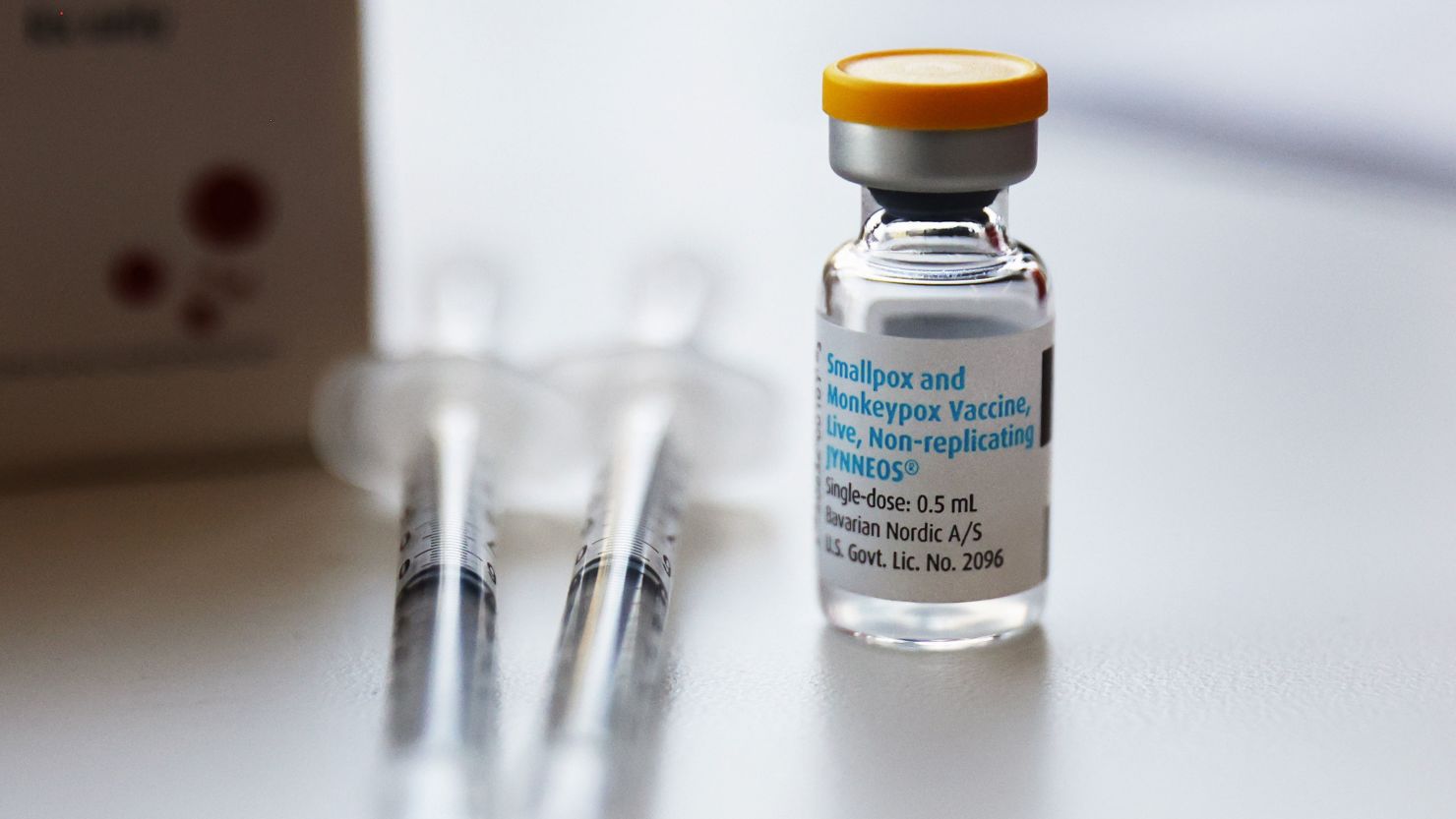Eligible individuals who did not receive the monkeypox vaccine were around 14 times likelier to become infected with the virus than those who were vaccinated, according to federal government data posted by the US Centers for Disease Control and Prevention.
That figure reflects the first wave of authoritative data collected by the Biden administration on the efficacy of the monkeypox vaccine that is currently being administered across the United States. The data marks an important milestone in the administration’s fight against monkeypox, particularly given the unprecedented nature of this year’s outbreak.
“There have been limited data on how well the Jynneos vaccine performs against monkeypox in real-world conditions,” CDC Director Dr. Rochelle Walensky said. “These new data provide us with a level of optimism that the vaccine is working as intended.”
Multiple health officials said that the vaccines data has the administration feeling increasingly optimistic about the efficacy of the two-dose Jynneos monkeypox vaccine – and the possibility of ultimately eliminating the current outbreak in the US altogether.
“We are cautiously optimistic about the study and think if we continue to get vaccines out to those that are at highest risk for disease, and if we continue to promote the behavioral changes that we know work, that the combination of those two will allow us to continue to see decreases in cases and hopefully eliminate the current monkeypox outbreak in the United States,” one senior health official told CNN.
The official cautioned that there are some important caveats to the findings. For example, the latest study can’t say how much changes in human behavior might be a factor for the vaccinated individuals, they said.
“What it doesn’t let us do is fully disentangle pieces of this that may be behavioral change pieces that may be related to sexual networks or to who people are coming into contact with,” the official said. “We know that at the start of the monkeypox outbreak, a lot of gay and bisexual men changed their behaviors.”
There are also outstanding questions about durability of the vaccine and how long the protection would last. US health officials have seen protection from monkeypox for those vaccinated with Jynneos as early as two weeks after the first dose, but are continuing to push for anyone eligible to get both doses of the vaccine regimen for maximum protection.
“We know this is a two-dose vaccine and we’re continuing to encourage people to get the second dose because all of the prior studies have shown that when you get that second dose, you have a more profound immune response,” the official said.
Bob Fenton, the White House monkeypox response coordinator, said that so far more than 800,000 doses of monkeypox vaccines have been given.
The CDC estimates 1.7 million gay and bisexual men in the US are at highest risk for catching monkeypox.
Recent case trends suggest the monkeypox outbreak is slowing in the United States. According to data collected by the CDC, average daily new monkeypox cases have been coming down in the United States since mid-August, a sign that the vaccination campaign is working.
As of September 27, there have been 25,300 cases of monkeypox diagnosed across all 50 states. The CDC announced Wednesday it is expanding eligibility for the Jynneos monkeypox vaccine to include pre-exposure prophylaxis, or PrEP.
“By expanding eligibility and shifting to a PrEP strategy across the country, we’re looking to ensure those at the highest risk for monkeypox receive the vaccine before exposure and that vaccines continue to be made available equitably to those who need them,” Walensky said.
The Biden administration is encouraging states and counties to leverage money they’ve received for sexually transmitted diseases and mental health to pay for their efforts to fight monkeypox.
The White House had asked Congress to approve $4.5 billion to fund the monkeypox response. But that request, along with a request for more money to fight Covid-19, was stripped from the latest version of a short-term funding bill that Congress hopes to pass this week to avert a government shutdown.

